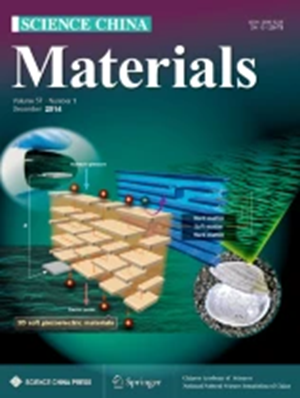A highly linear stretchable MXene-based biocompatible hydrogel–elastomer hybrid with tissue-level softness
Abstract
Maintaining low modulus while endowing the wide-range linear stretchability to wearable or implantable devices is crucial for these devices to reduce the mechanical mismatch between the devices and human skin/tissue interfaces. However, improving linear stretchability often results in an increased modulus of stretchable electronic materials, which hinders their conformability in long-term quantifiable monitoring of organs. Herein, we develop a hybrid structure involving interlocking low-modulus porous elastomers (Ecoflex-0030) and MXene-based hydrogels with crosslinking networks of polyvinyl alcohol, sodium alginate, and MXene. This hydrogel–elastomer structure exhibits superior performance compared with previous reports, with a wide linear stretchability strain range from 0 to 1000% and maintaining a low modulus of 6.4 kPa. Moreover, the hydrogel–elastomer hybrids can be utilized as highly sensitive strain sensors with remarkable characteristics, including high sensitivity (gauge factor ∼3.52), a linear correlation between the resistance and strain (0–200%), rapid response (0.18 s) and recovery times (0.21 s), and excellent electrical reproducibility (1000 loading–unloading cycles). Those electrical and mechanical properties allow the sensor to act as a suitable quantifiable equipment in organ monitoring, human activities detecting, and human–machine interactions.


 求助内容:
求助内容: 应助结果提醒方式:
应助结果提醒方式:


